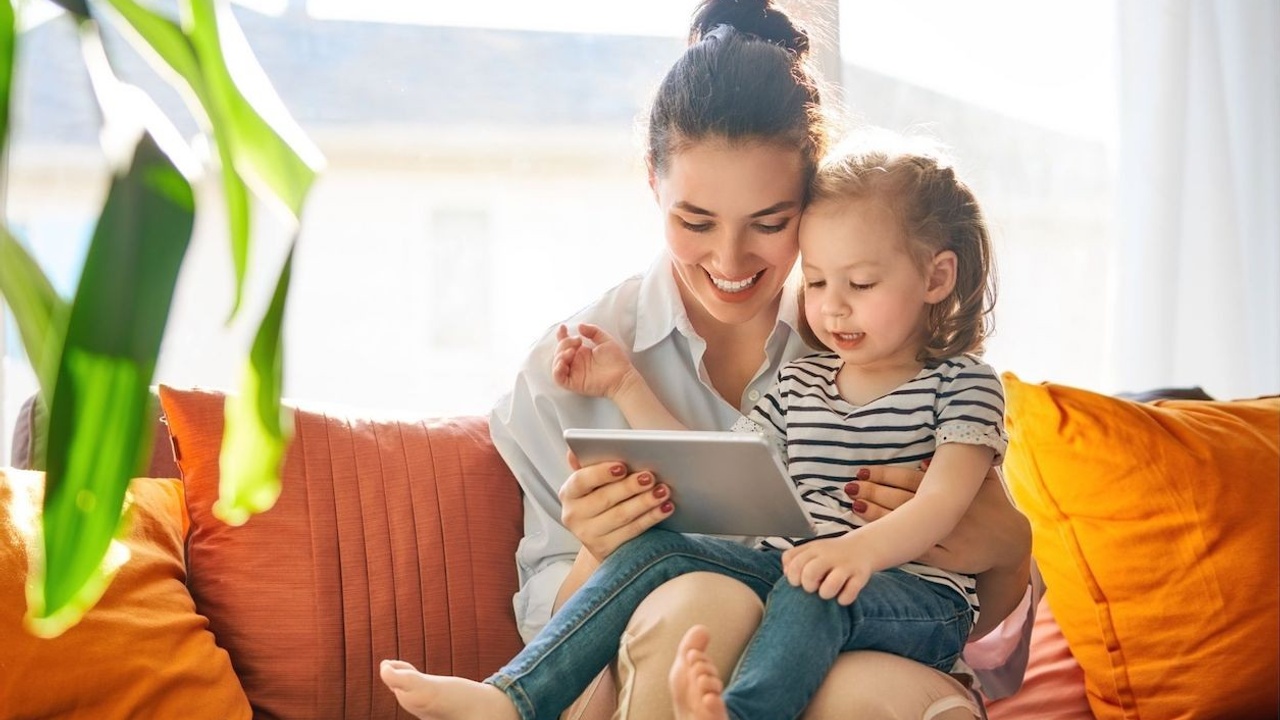From the expert: Navigating our children's eyesight in this digital world
Apr 06, 2022
From our resident scholar and optometrist Dr. Michelle Baron
“Are screens ruining my child’s eyes?”
This is the number one concern I get from parents when they step into my exam room. Over the past two years, we as parents have been faced with unprecedented challenges, including navigating the increasingly digital world our children will grow up in. As both an eye doctor and mom of two young children, I also worry about screen time for my kids. With that in mind, here are some facts and tips through an eye doctor’s lens…
Is there a link between screens and our vision?
Yes! Unfortunately there is.
Recent research shows a direct link between screen time use and the development of myopia (nearsightedness, which means difficulty seeing far away). This is particularly true with tablets and phones that we tend to hold close to our faces. High levels of screen time on these devices were associated with a 30% higher risk of myopia. This increased to 80% when combined with excess computer use.
Okay, so my child will need glasses, what’s the big deal?
Aside from the cost, nuisance and the reliance on having to wear glasses, those with high levels of myopia have an increased risk of eye diseases such as glaucoma and retinal detachments.
Will blue-light glasses help stop this? What is their deal and why did all the kids in my child's online class start wearing them during the pandemic?
Ah, the mystical blue-blocking glasses…
This is probably the second most common question I get from parents. Blue-blocking lenses reflect away blue-wavelength light (the closest wavelength to UV light) from our devices. In large quantities, like what is emitted from the sun, blue-light is damaging to our eyes. However, research suggests that the quantity of blue-light from our digital devices is not enough to alter our eye health and has no link to affecting the need for prescription glasses.
So what do you recommend when it comes to screens?
When it comes to screens the best we can really do is set up good habits.
My top tips for managing screen time with our children are the following:
- Bigger and farther is better than small and close: Opt for a desktop computer or TV as opposed to phones or tablets whenever possible.
- Hold smart devices 40 to 60 centimetres away: If using phones or tablets, encourage your children to hold them at least 40 centimetres away, typically the distance from their elbow to knuckle.
- Take breaks: Encourage your children to take breaks every 20 to 30 minutes with an activity that does not utilize screens.
- Get outside: Research shows that outdoor time can help reduce the chance of becoming myopic. Try and get outdoors 100 minutes per day.
- Put your devices to bed one hour before bedtime: Have your kids step away from screens one hour before bedtime to ensure better quality sleep.
- Have your children's eyes checked routinely: Early intervention can help slow down myopia with the use of special glasses, contact lenses or medicated eye drops
We live in a digital world. There is no avoiding it! Remember that balance is key and early intervention can help.
Make sure you are taking your kids for annual eye checks. You can find me at Eyes on Sheppard in North York where I start checking kids eyes routinely at 6 months of age.
For more tips on screen time, kids eye health and even our own aging eyes, follow me on Instagram at @eyecaremom and come visit me at Eyes on Sheppard. Looking for some mommy self-care, come check out our state-of-the-art EyeSpa, Eyesthetics on Sheppard.
See you soon!
Dr. Michelle Baron
Optometrist
Family Eye Care and Aesthetic Optometry
References:
Joshua Foreman, Arief Tjitra Salim, Anitha Praveen, Dwight Fonseka, Daniel Shu Wei Ting, Ming Guang He, Rupert R A Bourne, Jonathan Crowston, Tien Y Wong, Mohamed Dirani. Association between digital smart device use and myopia: a systematic review and meta-analysis. The Lancet Digital Health, 2021.
Katoe Williams, Christopher Hammond. High myopia and its risks. Community Eye Health, 2019; 32(105): 5–6.
Lawrenson, JG, Hull, CC, Downie, LE. The effect of blue-light blocking spectacle lenses on visual performance, macular health and the sleep-wake cycle: a systematic review of the literature. Ophthalmic Pysiol Opt. 2017; 37(6): 644-654.
Rose KA, Morgan IG, Ip J, Kifley A, Huynh S, Smith W & Mitchell P. Outdoor activity reduces the prevalence of myopia in children. Ophthalmology. 2008; 115: 1279–1285.
Xiong S, Sankaridurg P, Naduvilath T, et al. Time spent in outdoor activities in relation to myopia prevention and control: a meta-analysis and systematic review. Acta Ophthalmol. 2017;95(6):551-566.
Stay connected with news and updates!
Join our mailing list to receive the latest news and updates from our team.
Don't worry, your information will not be shared.
We hate SPAM. We will never sell your information, for any reason.


